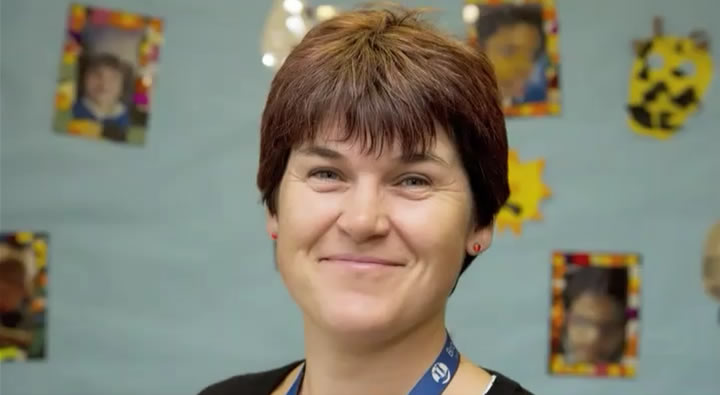Previously we have seen examples of the professionals who work with children with CLDD on an everyday level. Despite the image suggested by the support web, the child is not always physically surrounded by experts. Decisions are made that stimulate the child to learn and to help themselves.
The ideas are usually implemented by teaching assistants (TAs) whose experience may be extensive but not necessarily expert. The expert proffers useful information through the team for the TA to support and encourage the child to develop.
Can a TA ever deliver the expertise of a doctor, nurse or teacher? Consider the implications of training a TA to deliver support suggested by experts. What are the pragmatics?
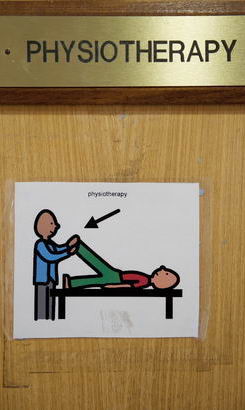
In terms of everyday involvement these are examples of more distant
but important contributors in the CLDD team:
- Psychiatrists
- Psychologists – Clinical and Educational
- Paediatricians
- Specialist nurses
- Physiotherapists
- Specialist teachers
- Creative arts therapists: Art, Music, Drama
Make a list of people who do interact on a daily basis with the child. Where would you locate them in the support web? Draw a web indicating the relative positions of all these professionals, close and distant.
An important aspect of having a profession is to take responsibility for gaining knowledge in your area of expertise. Take a moment to think about your own training and importantly your Continued Personal Development (CPD). How do you keep in touch with new developments?
Through your representative body you may be able to read of the research of others in your field. You may read related academic journal articles and take extra training. How up to date are you with government legislation?
Do you rely on leaders to keep yourself informed of developing regulations or are you already a leader? Describe your
leadership roles.
Having common goals and understanding current best practice is important. Likewise having new ideas to share with your colleagues helps development. These issues will be followed up in level D.
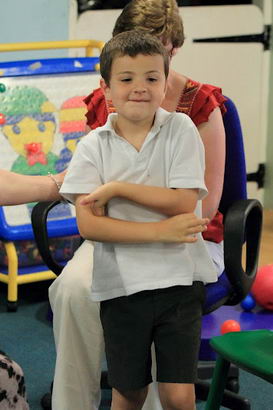
Models of care are developed across disciplines. Quality care comes from agreement on good practice and shared goals. One such model of care is Team Around the Child (TAC), in which strategies are coordinated from the input of many professionals.
Although TAC has been a successful coordinated approach to teaching and caring for children with CLDD, it has more recently been observed that some learning needs may not be being met.
Through the multidisciplinary pathways the existing 'repertoire' of pedagogy is falling short. The issues of teaching styles will be explored in Level D.
The rapidly growing new generation of children with complex learning needs requires diverse points of pedagogical focus not only in curriculum but particularly in teaching methodology. The age old question of 'what to teach' is as pertinent to those with CLDD as with any child.
According to Carpenter (2011), teachers involved in the DfE funded CLDD research project have found that learning profiles were 'spiky, with sometimes polarised islets of attainment'.
The concept of pedagogical reconciliation and pedagogical re-engineering will follow in level D. Meanwhile consider the impact of CLDD on learning. List some current teaching strategies you feel are relevant to CLDD and suggest where changes might improve effectiveness.
Children with complex needs require a raft of expertise. Through evidence-based research it is realised that support and teaching must be tailored to the individual child according to the particular combinations and complexities of conditions.
The multidisciplinary team continues to be paramount but the fine tuning of shared resources through more transdisciplinary working is evolving.
In order to straighten out some 'spikes' in learning, the professionals could work together rather than merely streaming
information from a single point of view. If different professions share expertise then the expertise of all the team members
could be enhanced. Consider how the common phrase of 'cascading information' might differ between multidisciplinary working
and transdisciplinary working. The information is not simply cascading vertically in steps from expert to key worker, it is
mingling horizontally with different viewpoints from those with
different professions.
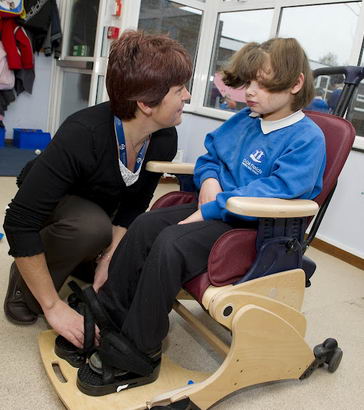
Consider the wealth of knowledge brought by professionals across education, social care and health services, including teaching assistants, class teachers, deputy head teachers and head teachers, education psychologists, social workers, GPs, health visitors, school nurses, child health doctors, community psychiatric nurses and community learning disability nurses.
Their specialist knowledge and skills support and facilitate the assessment and review process, the delivery and implementation of interventions and treatments and family support and advice.
Which of these people are key workers in everyday or frequent contact with children?
The teacher in this audio clip explains the contributions of the multidisciplinary team involved with her pupils. These
include paediatricians, physiotherapists and occupational therapists and the nursing team. Clinics are held at school with
parents and
the children.
Consider how the complex health needs of these children affect their learning.
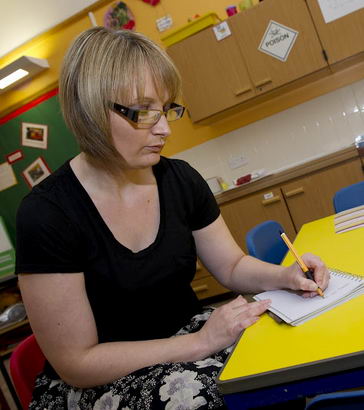
Management skills provide a pivotal point where the more distant professionals meet the delivery of services through key
workers in school and at home. Head teachers and senior management are the advocates of the whole school as well as the individual
children. They synthesise and act on expert information translating it into
practical support.
The flow of information to support each child passes through the bottleneck of the management leaders and key workers in school. Consider what evidence inspectors might require to judge the management of the school.

Abbott, D., Townsley, R. and Watson, D. (2005) Multi-agency working in services for disabled children: What impact does it have on professionals. Journal of Health and Social Care in the Community 13 (2) 155-163.
Carpenter, B. (2011) The CLDD Research Project final report. Specialist Schools and Academies Trust.
Gove, M. and Teather, S. Support and aspiration: A new approach to special educational needs and disability. A consultation. Green Paper. Department for Education. March 2011.
